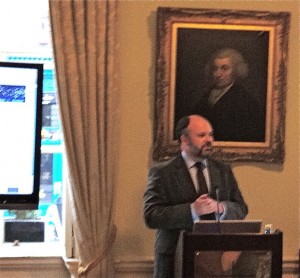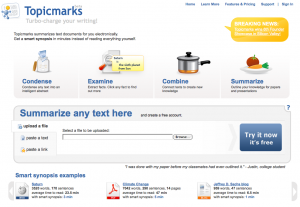I was on The Atlantic site and noticed a neat visualization badge by Infomous. It is a variant on the usual word cloud that draws lines between related words and puts simple cloud circles around related words. As you can see it doesn’t always get the clouds right. On the left you have Japan connected to protesters and protesters connected to Syria. There is not, however, any connection between Japan and Syria except that protests are happening in both.
If you get an account Infomous lets you make your own clouds.
Update: Pablo Funes from Icosystem Corp sends this email comment on the post:
We use Mark Newman’s algorithm for network communities to identify clusters of news. In your example, Japan and Syria are both connected to “protesters” and therefore share the same cluster even though there are no news articles that bear on both Japan and Syria (so there is no direct connection between both terms). One could argue, with this example at least, that there is a worldwide series of events that have been unfolding over the last few months, with public protests as the visible common feature (Tunisia, Egypt, Libya, and so on) which makes the connection “countries where protests are happening” a relevant one. And yet, it is true that sometimes the connection is not relevant at all, as it happens when generic words, such as “video” or “said” for example, are shared across news stories.
Our Appinions-based clouds rely on sophisticated semantic analysis provided by Appinions.com (see http://www.infomous.com/site/events/JapanNuclear/). Here, topics are connected because they are discussed by the same web user in the same posting. We use the same algorithm to identify clusters in this network. You can turn off clustering by unchecking “groups” on the bottom toolbar.





